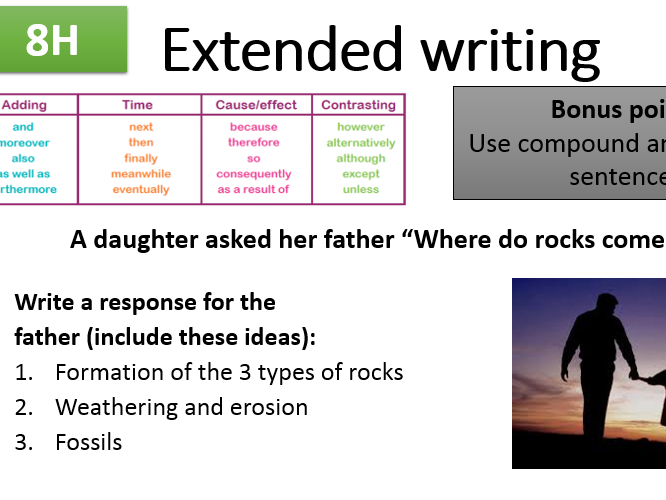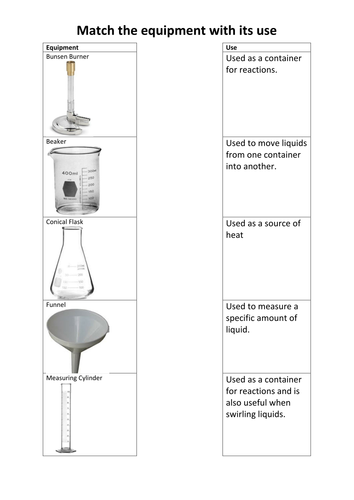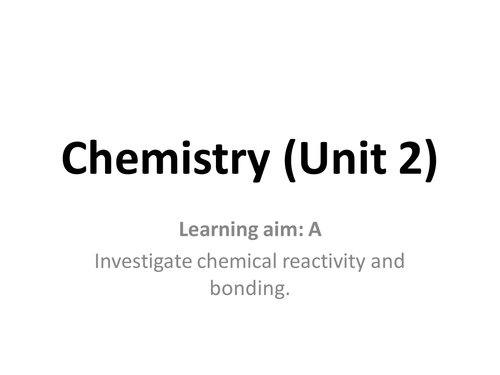243Uploads
117k+Views
56k+Downloads
Chemistry

C13.3 Greenhouse gases
AQA GCSE Sciences (9-1)
Chemistry: C13 The Earth’s atmosphere
Lesson 3: C13.3 Greenhouse gases
Based on the Kerboodle Resources
The AQA Kerboodle worksheet are not included so as to be acting within the TES code of conduct.

C4.6 Expressing concentrations
AQA GCSE Sciences (9-1)
Chemistry: C4 Chemical calculation
Lesson 5: C4.6 Expressing concentrations
Based on the Kerboodle Resources
The AQA Kerboodle worksheet are not included so as to be acting within the TES code of conduct.

C11.2 Condensation polymerisation
AQA GCSE Sciences (9-1)
Chemistry: C11 Polymers
Lesson 2: C11.2 Condensation polymerisation
Based on the Kerboodle Resources
The AQA Kerboodle worksheet are not included so as to be acting within the TES code of conduct.

C3.6 Properties of small molecules
AQA GCSE Sciences (9-1)
Chemistry: C3 Structure and bonding
Lesson 6: C3.6 Properties of small molecules
Based on the Kerboodle Resources
The AQA Kerboodle worksheet are not included so as to be acting within the TES code of conduct.

KS3 Science Complete Extended Writing Task (Yr7-8)
Best used just before or after finishing a topic - an ideal activity for deep marking.
Each slide contains a set of connective and also prompt ideas.
Topics included:
* Adaptation, Neutralisation, Particle theory, Detecting sound, Puberty, Drugs and health, Fossil fuels.
* Respiration, Rock cycle, Payback-time, Digestion, Diffusion, Acidification of forests, Pollination, Earth and space

C4.3 From masses to balanced equations
AQA GCSE Sciences (9-1)
Chemistry: C4 Chemical calculation
Lesson 3: C4.3 From masses to balanced equations
Based on the Kerboodle Resources
The AQA Kerboodle worksheet are not included so as to be acting within the TES code of conduct.

C11.1 Addition polymerisation
AQA GCSE Sciences (9-1)
Chemistry: C11 Polymers
Lesson 1: C11.1 Addition polymerisation
Based on the Kerboodle Resources
The AQA Kerboodle worksheet are not included so as to be acting within the TES code of conduct.

C3.10 Properties of metals and alloys
AQA GCSE Sciences (9-1)
Chemistry: C3 Structure and bonding
Lesson 10: C3.10 Properties of metals and alloys
Based on the Kerboodle Resources
The AQA Kerboodle worksheet are not included so as to be acting within the TES code of conduct.

C2.2 Electronic structure and the periodic table
AQA GCSE Sciences (9-1)
Chemistry: C2 The periodic table
Lesson 2: C2.2 Electronic structure and the periodic table
Based on the Kerboodle Resources
The AQA Kerboodle worksheet are not included so as to be acting within the TES code of conduct.
Keywords: Shells, Electronic structure, Noble gases

C2.5 Explaining trends
AQA GCSE Sciences (9-1)
Chemistry: C2 The periodic table
Lesson 5: C2.5 Explaining trends
Based on the Kerboodle Resources
The AQA Kerboodle worksheet are not included so as to be acting within the TES code of conduct.

C13.1 History of our atmosphere
AQA GCSE Sciences (9-1)
Chemistry: C13 The Earth’s atmosphere
Lesson 1: C13.1 History of our atmosphere
Based on the Kerboodle Resources
The AQA Kerboodle worksheet are not included so as to be acting within the TES code of conduct.

C12.4 Testing for positive ions
AQA GCSE Sciences (9-1)
Chemistry: C12 Chemical analysis
Lesson 4: C12.4 Testing for positive ions
Based on the Kerboodle Resources
The AQA Kerboodle worksheet are not included so as to be acting within the TES code of conduct.

C5.4 Soluble salts
AQA GCSE Sciences (9-1)
Chemistry: C5 Chemical changes
Lesson 4: C5.4 Soluble salts
Based on the Kerboodle Resources
The AQA Kerboodle worksheet are not included so as to be acting within the TES code of conduct.

C12.3 Testing for gases
AQA GCSE Sciences (9-1)
Chemistry: C12 Chemical analysis
Lesson 3: C12.3 Testing for gases
Based on the Kerboodle Resources
The AQA Kerboodle worksheet are not included so as to be acting within the TES code of conduct.

Safety and Scientific Equipment (Introduction lesson 3/4)
Designed to be the third lessons for Year 7s (3/4).
Learning outcomes:
(*) Describe the use of different lab equipment.
(*) Identify the appropriate lab equipment for an investigation.
(*) Identify safety issues in an unsafe environment.
Students will learn the common equipment they will encounter in the lab and their function.
They will also learn how to measure liquids using equipment that form a meniscus.
There are also safety rules and also how to light a Bunsen Burner

C5.2 Displacement Reactions
AQA GCSE Sciences (9-1)
Chemistry: C5 Chemical changes
Lesson 2: C5.2 Displacement Reactions
Based on the Kerboodle Resources
The AQA Kerboodle worksheet are not included so as to be acting within the TES code of conduct.

C13.5 Atmospheric pollutants
AQA GCSE Sciences (9-1)
Chemistry: C13 The Earth’s atmosphere
Lesson 5: C13.5 Atmospheric pollutants
Based on the Kerboodle Resources
The AQA Kerboodle worksheet are not included so as to be acting within the TES code of conduct.

C13.4 Global climate change
AQA GCSE Sciences (9-1)
Chemistry: C13 The Earth’s atmosphere
Lesson 4: C13.4 Global climate change
Based on the Kerboodle Resources
The AQA Kerboodle worksheet are not included so as to be acting within the TES code of conduct.

NEW BTEC First Principles of Applied science
Coursework section. Before each task I'll give a brief introduction with some questions so they get use to the knowledge in the topic. These worksheets detail the scenarios and work that should be present in their coursework. Given to students at the start - may be good to also give them a due date for each task. It is probably best to have access to laptops/pcs. GOOD LUCK GUYS *LOVELY BTEC*!!!!!!!!!

Flames test (Game of thrones)
Have strontium, copper, and iron solution in spray bottles. This will be the saliva of your dragons and they will give the distinctive colours. Now pupils perform flames test with known compounds to match up the colours and identify ions present in your dragon saliva.




















